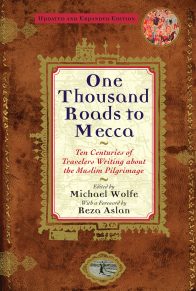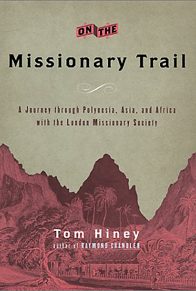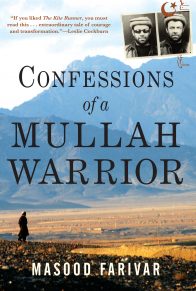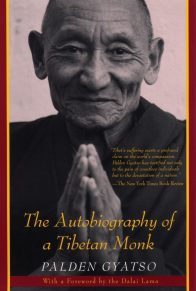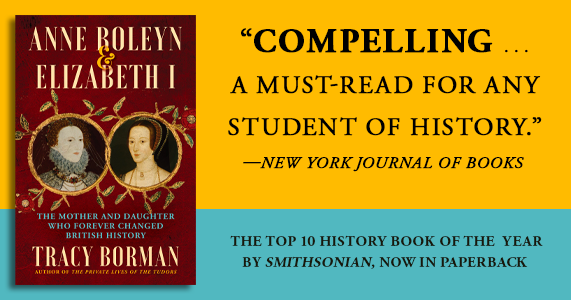The Prophet Muhammad (c. 570-632), finding the inhabitants of the thriving mercantile city of Mecca hostile to his religious beliefs, led a group of Muslims on the hijra, the migration to a northern agricultural settlement, Yathrib. There he founded an Islamic state, which, after his death, developed into a mighty empire. A member of one of the minor branches of the Quraysh tribe, Muhammad worked as a trader and business manager for a wealthy widow, Khadija (d. 619), whom he later married. Troubled by the feuds among the competing Arabian tribes and selfishness of clan members, Muhammad experienced revelations of the monotheistic faith he called Islam. This faith brought all believers under the single, majestic God, Allah, and into a unified Muslim community, the umma. Transmitted orally in the Arabic language, and later written down, these revelations became the Quran, Islam’s scripture, selections from which we present, along with other early Islamic texts, in Reading 1.
Islam (meaning submission to Allah) requires Muslims to acknowledge and follow God’s will, and live according to the model of public and private righteousness set forth in the Quran and in the hadith, records of the Prophet’s actions and pronouncements, some of which are also in Reading 1. Muslims also must carry out specified ritual observances: praying five times daily, participating in congregational prayer on Fridays, paying religious taxes to benefit the umma, and fasting from sunrise to sunset during the lunar month of Ramadan. All Muslims able to do so should make at least one pilgrimage (hajj) in their lifetimes to the kaaba shrine in Mecca, a pilgrimage destination even before the rise of Islam. Muslims also believe that the all-knowing, omnipotent God who created the universe will preside over a final Day of Judgment and will send the immortal souls of the righteous to heaven and the wicked to hell.
Some of the beliefs and practices of Islam continued and modified long-standing Arabian customs and those of the preexisting faiths of Judaism and Christianity. The Quran recognized the Old and New Testaments of the Bible as God’s earlier revelations and referred respectfully to the Hebrew prophets, including Abraham and Moses, and acknowledged them as early prophets of Islam. Jesus was also a Prophet, a righteous man and teacher of truths, but not considered by Muslims a son of God, or part of any holy trinity, which they view as an impermissible departure from monotheism. Muhammad received God’s final revelations, and became His final Prophet. Muhammad’s prophetic status means that Muslims view him as an exemplary human being, eminently worthy of emulation, transmitter of God’s word, but not himself a god.
The Quran portrays women as the spiritual equals of men, allowing them a share of family wealth and prohibiting female infanticide. But Islam, continuing customs then prevalent in Arabia, also upheld such patriarchal social values as male domination of family and public life. Muslims also adopted some of the practices of societies they had conquered, such as cloistering upper-class urban women in the harem (literally, a sacred place), a custom already widespread in pre-Islamic Middle Eastern empires. Some modern feminists claim that the early years of Islam, in which Arabian women played important public roles, constituted an historical precedent for women’s freedom and equality.
An Islamic State in Madina
Khadija, Muhammad’s first wife, accepted his teaching before all other Arabs. Some of Muhammad’s relatives and friends, and a number of young men disillusioned with tribal values in the city of Mecca, also joined the umma. The merchants who dominated Muhammad’s own Quraysh lineage became increasingly hostile, fearing that Muslims, committed to a community that transcended tribal ties, would pose a threat to Arabia’s traditional social order. In 622 the Muslims migrated from Mecca to Yathrib, later called Madina, where Muhammad and his followers constructed the first Islamic social order. Converts responded to the appeal and advantages of a divinely inspired, unified community that protected its members. Even at a distance, however, the new umma came into direct conflict with the Quraysh merchants. Dispatching an army against the outnumbered Muslims, the Meccans ended up losing to their adversaries. Before his death in 632, Muhammad had converted most of the Arabian tribes to Islam, and Mecca became the new Islamic state’s capital.
Strife Within the Umma
Controversy exists over whether the Prophet had indicated how the Muslims should choose new leaders. On his death his companions selected a caliph (khalifa) from among their own ranks to lead the umma. At first they passed over his close male kinsman and one of the first converts to Islam, Ali ibn Abi Talib (d. 661), husband of Muhammad’s daughter, Fatima (d. 633). As Muslim armies won major victories beyond Arabia, disputes over Islamic succession flared into open warfare. When an assassin killed the third caliph, Uthman, in 656, the previously overlooked Ali became the new caliph. But not all Muslims accepted Ali, and civil war ensued. Ali, too, was murdered and Uthman’s kinsman Muawiya ibn Abi Sufyan (605-680) became the fifth caliph, the first of the Umayyad dynasty.
Ruling from their capital Damascus for almost a century, the Umayyads conquered a vast empire, but they remained a largely Arabian ruling class, living in garrison towns apart from their non-Arab subjects. The Shiites, or partisans of the dead Ali, began to press the competing claims of Ali’s son, Husayn (b. 626), who led his supporters against a far larger Umayyad army in 680 and died on the battlefield. Shiites continued to believe in the legitimate succession only of those who descended from Ali’s lineage. The Twelver Shiites (who later became dominant in Persia) believed that descendants of Ali constituted a series of twelve legitimate imams (leaders of the umma), who lived under the rule of Sunni caliphs deemed by the Shiites as illegitimate. The twelfth imam disappeared in 878 but would, these Twelvers believed, some day reappear and usher in a reign of justice. Other Muslims accepted the precedent set by the Prophet’s companions, which eventually evolved into the majority (Sunni) position—dynastic succession, upheld by military force and ratified by prominent religious scholars (the ulema) along with other important figures. Reading 2 discusses the divergent views on how to choose a legitimate Muslim ruler developed by the Middle Ages. The inability to settle disputes over what constituted legitimate succession reappeared periodically in the Islamic world, sometimes flaring into conflict but most of the time lying dormant. Even among Sunni Muslims, diverse positions emerged over legal matters, allowing for the multiple readings of the law we later discuss.
Expansion of Muslim Domains
Having expanded rapidly into Syria, including Palestine, the triumphant Umayyads then extended their conquests to Persia, northern Africa, and Spain by 711. They erected the shrine in Jerusalem known as the Dome of the Rock over a sacred boulder at the site of the Jewish Temple destroyed centuries earlier by the Romans. Earlier still, according to tradition, the patriarch Abraham nearly sacrificed his son Isaac at the same spot. Yet the site has additional significance for Muslims, who also believe that the Archangel Gabriel led Muhammad there years before his death on a miraculous night journey, ascending from that rock to heaven. (See the Night Journey section in Reading 1.)
Unified and inspired by their Islamic faith, the seemingly unbeatable Muslim armies quickly imposed peace on a vast, now integrated empire. The spread of Muslim power beyond Arabia did not mean forcible conversion of the conquered populations; Christians of many denominations and Jews, collectively known as the dhimmi, found toleration in the Umayyad and later empires. The Quran distinguished between these non-Muslim monotheistic “people of the book” and polytheistic, nature-worshiping faiths, whose adherents were expected to convert.
Although Umayyad conquests had succeeded in ushering in a century of prosperity for the Middle East, problems arose. The dynasty found it difficult to supply the material needs of its far-flung populations. In addition, recent converts resented the favoritism toward Arab elites shown by Umayyad rulers. By the middle of the eighth century a rival faction claiming descent from the Prophet’s uncle Abbas (d. 653) mustered support from Shiites and other discontented subjects throughout the weakened empire, successfully challenged the Umayyads in battle, and established a new dynasty in Baghdad. Once in power, however, these new Abbasid caliphs (750-1258) ruled as Sunnis and initiated an epoch known as the Golden Age of Islam.
The Abbasid Dynasty
The Abbasids inherited from the Umayyad dynasty a vast empire, which they further expanded and ruled by reaching out beyond the Arabian elites to embrace recent Muslim converts and grant them equality with Arabs. The Abbasids also continued the earlier practice of giving adherents of other monotheistic religions protected status within imperial domains. Residents of dhimmi communities had to pay higher taxes than Muslims, but in return they maintained local autonomy under the leadership of their clergy, and later (when Muslims extended their conquests to India) Hindu princes. Abbasid caliphs incorporated much of the elaborate courtly style and pomp of former Persian rulers. Their power and inclusiveness also diffused for a time much of the potential for conflict between Sunni and Shiite subjects, until the rise of the competing Fatimid dynasty in tenth-century Egypt (which we discuss in the introduction to Chapter 2).
Without the empire’s economic prosperity, none of this tolerance (rare at the time anywhere in the world) would have developed. Imperial territory stretched from Spain along the North African coast, through the eastern Mediterranean basin, the Middle East, Central Asia, and northwest India (see Map p. 9). This vast area formed a flourishing commercial system protected by Abbasid military and naval power. Much of the empire’s wealth derived from trade. Spices, jewels, textiles, and porcelain came westward from Indonesia, China, and ­India along the ancient Silk Road to the Middle East. Merchants purchased this precious cargo in Abbasid domains or shipped goods via the Red Sea and then transported them up to Mediterranean ports. Gold from West Africa arrived via North Africa. Textiles, metals, and olive oil moved eastward to reach markets in Damascus, Baghdad, and Cairo. Abbasid manufactured goods, metalwork and armaments, paper, and fine textiles also found their way into the region’s trade networks. Farmers in Abbasid domains produced a variety of food crops, including citrus fruits, melons, sugar, rice, and cotton, for the export trade.
This expanded, prosperous Islamic empire no longer resembled the austere simple community in Arabia, but by the tenth century it also no longer wielded its earlier military might. Abbasid caliphs and officials relied increasingly on warriors from frontier tribes and slaves captured in battle to defend border regions, and within the imperial heartlands they had to cede power to local military chieftains who became, independent rulers. Even as Abbasid power weakened, however, the empire’s vibrant Islamic culture remained intact and flourished.
Islamic Law, or Sharia, and the Ulema
The Muslim ulema (playing a very different role than the Christian clergy of Europe) lent stability to the far-flung empire in many ways, none more important than the devising of legal codes, a component of sharia. This body of law, derived from the Quran and hadith, regulated Muslim behavior. During the eighth and ninth centuries there emerged four separate schools of interpretation in Muslim law. The Hanbali school, named after Ahmad ibn Hanbal (780-855), adhering closely to the religious texts, has the fewest followers in the Muslim world and now prevails in Saudi Arabia. The Malikis follow Malik ibn Anas (c. 715-795) and predominate in northern and western Africa and in parts of the Persian/Arabian Gulf. They allow judges some latitude to voice informed opinions on points of law, and permit use of analogies in interpreting the law. The Hanafi school, deriving from Abu Hanifa (700-c. 767), took hold in the Abbasid empire and its successor regimes, which we discuss in Chapter 2. In contemporary times the Hanafi school predominates in Muslim regions of the Indian subcontinent and Turkey. Hanafi judges use reason to interpret law in cases where the Quran and hadith provide no definitive guidance. The Shafii school, named after jurist al-Shafii (767-820), also permits judges to use reason to interpret hadith, but only within strict limits. It functions in Indonesia and East Africa. Shiite ulema developed legal schools as well, based upon their own sect’s codification of hadith.
Whatever school it emerged from, sharia deals with personal behavior, property rights, business agreements, inheritance, and marital and family obligations and hardly at all with matters of state organization and policy. To minimize conflict with rulers, the ulema conceded that caliphs and their successors could substitute for the sharia provisions of state-generated law, especially in the areas of criminal punishment and personal law. Sharia enjoins Muslims to follow Quranic injunctions to extend charitable aid to the needy, and prescribes strict prohibitions on gambling, usury, and consumption of pork and alcohol. It also obliges Muslims to convince their coreligionists to avoid wrongdoing and to struggle to maintain their own piety, which constitutes one of the meanings of jihad (another related meaning is “holy war” [see Reading 1]).
Besides shaping Muslim law and serving as judges, religious scholars have performed other functions throughout the Islamic world as teachers, notaries, and administrators of charitable and religious trusts. During Abbasid times a few highly qualified women joined their ranks. Eminent ulema and other holy figures acted as arbiters of Muslim societies, at times daring to criticize rulers and to demand from them righteous behavior.
When caliphs began to lose their worldly power to military dynasties in the mid-tenth century, a separation developed between state and religion in the Islamic world. The Seljuk sultans, a Turkish dynasty, ruled alongside the enfeebled Abbasid caliphs, now restricted mainly to religious functions. The Seljuks, eventually usurping Abbasid rule, exercised power over most of the Middle East during the eleventh and twelfth centuries. These Turkish dynasts, unable to claim descent from the Prophet’s lineage and lacking traditional legitimacy, enhanced their authority by turning to the ulema for assistance in garnering and retaining popular support. The Seljuks also built and endowed scores of madrasas (Islamic schools) where the ulema spread Sunni orthodoxy. By supporting the religious establishment from an invincible military position, they helped to formalize the separation of religion and the state. The ulema knew where real power resided and, whatever their theological reservations, backed these new rulers.
Muslim High Culture
The significant literary, artistic, architectural, and scientific legacies of the Abbasids attest to the cultural and intellectual vitality of the early Islamic centuries. Wealthy merchants, officials, and landholders supported a brilliant cultural efflorescence that we can barely hint at here. Intellectuals preserved and transmitted the knowledge and culture of earlier civilizations—Greek, Roman, and Indian. They also made fundamental contributions to science, philosophy, and medicine. Abu Nasr al-Farabi (872-950), called the second master (Aristotle being the first), explored the interplay of intellect and imagination in the creation and maintenance of civic virtue, and Abu Ali al-Husayn ibn Sina (980-1037) attempted to reconcile science and revelation (see Reading 3). Among the creative intellectuals flourishing in Islamic societies we find many non-Muslims, such as the Jewish philosopher, physician, and Talmudist Musa ibn Maymun (Moses Maimonides, 1135-1204), who lived and worked in Muslim Spain and Cairo, where he made major contributions to the strong rationalist strain of thought in the portion of the world dominated by Islam.
Wealthy patrons of scholarship in the Abbasid and other Muslim empires maintained large libraries housing vast collections of manuscripts. Educational institutions became accessible (through scholarships funded by pious foundations) to all groups in these highly literate societies in which the ability to read and master the Quran had great importance. When the immense corpus of learning produced and preserved in the Islamic world reached Christian Europe starting in the twelfth century, it astounded readers and helped shape Western scientific, theological, and philosophical discourse for centuries.
Although the Abbasid caliphate had fragmented by the mid-tenth century, the murder of the dynasty’s last caliph (see Reading 6b) and the destruction of Baghdad by the Mongols came in 1258. Disintegration at the imperial center did not lead to cultural decay, curtailment of commerce, or barbarism as it did in Europe after the earlier fall of the Roman empire. In Chapter 2 we examine the post-Abbasid centuries of the Middle East and other regions of the Islamic world.
Sufism
In addition to asserting the teachings of Sunni Islam and the articulation of legal systems, the Abbasid society and its successors also produced and maintained Islamic mysticism, or Sufism, whose adherents sought ways to reach God through intense religious experience. One of the earliest Sufis, the eighth-century poet Rabia al-Adawiyya, expressed in her writings (see Reading 4) profound love for God. She rejected the material world for the higher joy of God-centered reverence, as did later Sufi masters, male and female. Sufism eventually spread all over the Islamic world in the form of sainthood cults formed to honor pious Sufi sages. In later periods Sufi disciples established lodges (tariqas) where they practiced and taught their particular mystical rites. As the Abbasid empire fragmented into smaller Muslim states, networks of Sufi lodges, and pilgrimages to shrines of saints, created bonds among Muslims across political frontiers. Most Sufis turned away from asceticism but still sought intense mystical experiences. In the early sixteenth century Sufism actually gave rise to a major Shiite dynasty—the Safavid—as we show in Chapter 3.
Besides meditation and prayer, Sufis and some members of the ulema who joined their ranks also saw other ways to achieve communion with God. The famous theologian and Sufi Abu Hamid al-Ghazzali (1058-1111) evoked the “hidden fire” of music and dance as a route to divine ecstasy. Earlier, the Spanish Muslim theologian Ali ibn Ahmad ibn Hazm (994-1063), though not a Sufi, expressed appreciation of the ways in which humans can link their earthly love to love of God.
The Sufi orders not only led Muslim men and women to God, mysticism also provided through the widespread networks of tariqas solace and guidance in the turbulent and disaster-filled world of the thirteenth and fourteenth centuries, which Reading 6 reveals. Mysticism had rejuvenated Islam in a period of crisis. The tariqas also helped peasants organize local agriculture and integrated the rural population into a revitalized belief system, deepening religion’s hold on the population.
1. The Quran and Other Islamic Texts
Muslims believe that the Quran (Koran), the sacred book of Islam, revealed to the Prophet Muhammad in the Arabic language over a twenty-two-year period beginning in 610, is the timeless word of God. Most Muslims, viewing the scripture as a guide for life, own a copy of the Quran and many memorize it in childhood.
Some of the Prophet’s immediate followers committed to memory the suras (chapters) of the Quran as Muhammad spoke them. Others transcribed his utterances. According to Islamic tradition, the Caliph Uthman (d. 656) had an official text prepared, the Arabic Quran that has come down to us, a book ­using powerful and eloquent language. The selections we present here in English translation give a flavor of its exalted expression as well as its attention to matters of everyday life.
Excerpts from the sira, or Life of the Prophet of God, by ibn Ishaq (704-767), appear in the second section of this Reading. Composed by the grandson of a convert to Islam, this work comes to us in a later abridged edition written by ibn Hisham (d. 833). The sira incorporates oral traditions revealing a “chain of transmitters” (isnad), much as the hadiths, or traditions of the Prophet, do. For easier reading, we have omitted most of the transmitters’ names. The habit of naming sources and using direct speech makes it possible to evaluate the texts critically and also enlivens the subject matter, giving us narratives filled with both historical fact and God-given miracles.
The third part of Reading 1 consists of reported sayings and actions of the Prophet Muhammad, known as “Islamic Traditions,” or hadiths in Arabic. Muslim scholars have collected and commented on them since Umayyad times. The hadiths presented here come from a collection gathered by al-Bukhari (810-870), a Persian from Central Asia, which has had great influence over Sunni Muslims’ lives.
By early Abbasid times there also emerged a penal code administered by state officials, including the muhtasib who regulated public markets and businesses as well as aspects of public morality. We conclude Reading 1 with a selection of these regulations.
The Quran: Creation
God created the heavens and the earth—a real creation. Let Him be exalted above all false worship.
He created man from a drop of sperm—man who is brazenly contentious; the live-stock also He created on your behalf, for the warmth and other uses, as well as the food, you have of them. . . . Your Lord is truly gracious and compassionate.
Things beyond your knowledge He has created also.
It is for God to indicate what the right path is; there are some that go astray. Had God willed He had surely guided all of you aright.
It is He who sends down rain from heaven for you to drink and to water the trees of your pasture. . . . The night and the day He has made to serve your ends. Sun, moon, and stars are all recruited to His command.
He has also set the mountains firm on the earth that it may be solid under you. There are rivers and tracks for you so that you may find your way, landmarks too, and the stars by which men are piloted.
Shall He, then, who created, be on a par with that which does not? Will you not realize? Were you set to count up the mercies of God you would not be able to number them. God is truly forgiving and merciful. Sura 16
The Quran: The Last Day of Judgment
The Day of decision has its appointed time decreed—the Day when the trumpet is sounded. In throngs you will come; the heaven will be opened, its gates turning; the mountains will be carried away and dissolve like a mirage; Jahannam [hell] will lie in wait like an ambush, a place for the rebellious and their haunt for long years, where they shall taste no cool water nor refreshing drink but only boiling waters and bitter tears—their due requital.
They were not looking for their reckoning but totally rejected Our revelations. Everything We had ledgered in a book. “Taste, then, your retribution—a retribution which, on Our part, can only intensify!”
For those who truly fear God there is sure triumph, sheltered gardens and vineyards, buxom companions and a cup of overflowing delight. No idle talk will be heard there and no deceiving. Such is your . . . Lord’s recompense, a bounty and a reckoning from the Lord of the heavens and of the earth and all within them, the all-merciful—He to whom they have no prerogative to speak on that Day when the Spirit and the angels stand rank on rank. Nor shall they address the all-merciful save him to whom He gives leave, saying only what is truth. Sura 78
The Quran: The Prophets
We made the house (at Mecca) a place of sanctuary and security for the people, saying: “Make the place where Abraham prayed your house of prayer.” Thus We made Our covenant with Abraham and Ishmael, that they should cleanse My house as a sanctuary for pilgrims and men of devotion to make the pilgrim circuit and do acts of worship and prostration.
Abraham and Ishmael built the foundations of the house, saying: “Lord, accept it at our hands, You who hear and know our hearts. Make us ever submissive to You and make our descendants a community of obedience to You. Show us our forms of devotion and turn to us in mercy. For You are the merciful One who turns again to men. Send among our people after us a messenger of their own kin, who will recite to them Your revelations, teach them the Book and the wisdom and purge them from evil. For You are ever powerful and wise.”
Who but a fool would forsake the community of Abraham? We chose him in this present world; and in the world to come he will be among the righteous. . . .
To be rightly guided they say that you must be Jews or Christians. Say rather: “Ours is the community of Abraham, a man of pure worship. No polytheist he! Let your word be: ‘We believe in God and in what has been revealed to us, and revealed to Abraham, Ishmael, Isaac, Jacob, and the tribes, and we believe in what was brought to Moses, to Jesus, and to the prophets, from their Lord. We do not distinguish between any of them and to God we make submission.’” If they believe in accordance with this faith of yours, then are they truly guided. But if they turn away from it they are plainly in schism. God who hears and knows all will see you through in all your dealings with them. Sura 2
People of the Book, do not go to unwarranted lengths in your religion and get involved in false utterances relating to God. Truly, Jesus, Mary’s son, was the messenger of God and His word—the word which He imparted to Mary—and a spirit from Him. Believe, then, in God and His messengers and do not talk of three gods. You are well advised to abandon such ideas. Truly God is one God. Glory be to Him and no “son” to Him . . . their one and only guardian. Sura 4
The Quran: God’s Revelation to Muhammad
It is We who have communicated the Qur’an to you from above in gradual sequence. So await with patience what your Lord determines. Do not yield to any among them who is an evildoer or an unbeliever. Remember the Name of your Lord morning and evening; prostrate yourself to Him by night and celebrate His praise all the long night.
These men are in love with this fleeting world and put behind them the harsh reality of doom’s day. Sura 76
The Quran: Jihad, or Struggle for the Faith
If you obey God and His messenger, He will not let you forfeit any of your deeds. For God is forgiving and merciful. Believers are those who, having believed in God and His messenger, do not doubt further but strive in the way of God (Jihad) with their possessions and their persons. These are the ones who are truly sincere. Sura 49
Fight in pursuit of the way of God those who fight against you but do not provoke hostility. God has no love for those who embark on aggression. Slay them where ever you encounter them and drive them out from places whence they have driven you. Subversion is a worse thing than slaughter. Do not do battle with them, however, in the vicinity of the sacred mosque unless they are warring with you there. If they fight you, slay them; such are the deserts of those who deny the faith. But if they desist God is certainly forgiving and merciful.
Fight them until there is no more subversion and religion is wholly God’s. If they desist, hostility is at an end save for those who commit evil. Things sacrosanct allow of retaliation, so if in the sacred month let it be in the sacred month. Whoever makes aggression against you, take up hostilities in the same measure against them, fearing God. Know that God is with those who fear Him.
Going to war is prescribed for you, though it is to you a hateful thing. Yet it may well be that something you hate is nevertheless good for you, just as it can happen that you set your heart on what is bad for you. Knowledge in these things is God’s, not yours.
They put questions to you about going to war in the sacred month. Say: “To go to war in that month is a serious matter, but—in God’s sight—it is an even graver thing to forbid entry to the path of God, to deny the faith, to ban the sacred mosque and to throw out its people.” Subversion is more heinous than slaughter. They will not cease waging war against you until—if you are able—they make you turn back from your religion. Should any of you in fact turn back from his religion and die as a recreant from faith—the doings of all such will come to naught in this present world and in the next they will be denizens of the Fire eternally. Those who have believed, who have emigrated and striven in the path of God, can anticipate the mercy of God, who is ever forgiving and merciful. Sura 2
. . . [T]hose who take up retaliatory action when wronged are in no way culpable. It is only those who deal wrongfully with people who are to be reprehended—those who flout the right and commit outrage in the land. There is for them a grievous retribution. And whoever exercises patience and practices forgiveness—that is the staying power which masters things. Sura 42
The Quran: Society and Law
Woe to those who act fraudulently, who exact their full measure when in receipt from others, yet give short measure when they reckon out or weigh out for others. Do such people not realize that they will be raised to life again for the great Day—the Day when mankind will stand before the Lord of all being? Sura 83
They inquire from you about intoxicants and games of chance. Say: “In both there is great evil, as also some advantage for mankind. The evil is greater than the benefit.”
They ask you what they should lay out in charity. Say: “All you generously can.” So God makes His signs clear to you so that you may ponder how they bear on this world and the next. Sura 2
Believers! Eat of the good things with which We have provided you and give thanks to God—if indeed it is His worshippers you are! However, carrion, blood, and the meat of swine are prohibited to you as well as that over which any other name than God’s has been invoked. But if anyone is driven by necessity, without deliberate intent and not going beyond his need, there will be no sin incurred by him. God is forgiving and merciful. Sura 2
The Quran: Marriage and Family
. . . [T]ake to wife such women as may seem good to you, that is, two, three, or four, and if you fear that you cannot treat them equitably, then one only. . . . Give women their marriage portion [bride-price] as a free-will gift. But if they freely give back part of it to you take it with happy satisfaction. Sura 4
It is not lawful for you to reclaim possession of anything you have given to your wives. Sura 2
Men shall have a share in what parents and close relatives leave behind and women have a share in what parents and close relatives leave behind, whether it be little or large, a share is laid down. Sura 4
Tell the believers who are men to be chaste in their looking and to keep their sexual impulses under control. . . . And tell the believing women-folk to be chaste in their looking and to keep their sexual impulses under control, not parading their charms beyond what is chastely seen but drawing their veils over their bosoms. Let them not display their charms except to their own husbands, or fathers, or sons, or husband’s sons, their brothers, brother’s sons or sister’s sons, or their own women-folk, the slaves in their charge, or their male servants who are without sexual capacity, or children ignorant of the embarrassment of women’s nakedness. Sura 24
Women on being divorced must let three menstrual periods pass without co-habiting. . . . During this interlude their husbands have every right to take them back again if they desire to be reconciled. The wives also have rights of their own comparable to those their husband has over them, in all fairness, while men’s rights take precedence over theirs. God is all strong and all wise.
When you have divorced your wives and they have attained their term, do not hinder them from taking husbands for themselves if satisfactory agreement has been reached between them. Sura 2





